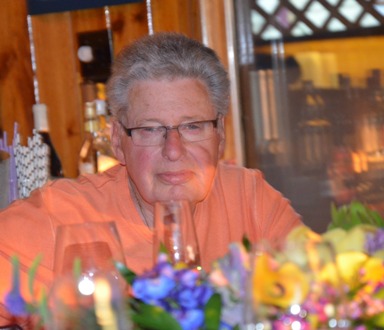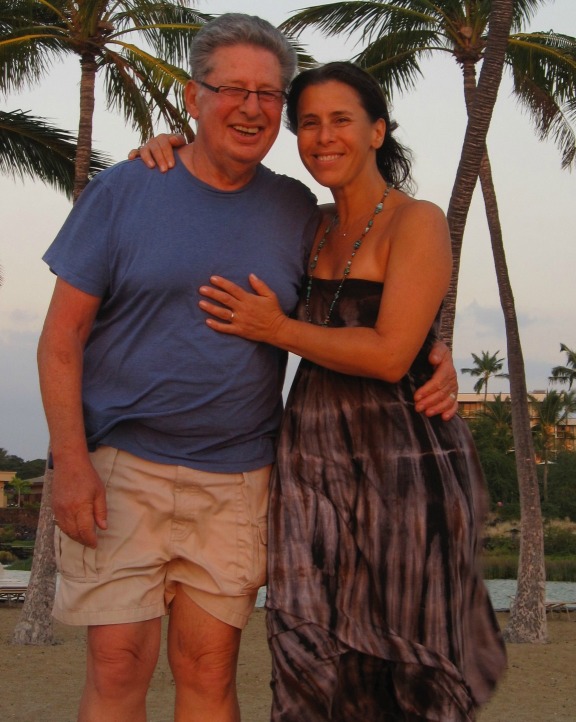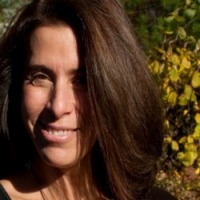They drew him in slowly, with beautiful people and rugged cowboys on the range; with sports heroes and models, and with parties and family fun—vignettes of lives well lived.
The cigarette ads that first attracted my father as a young man—and which continued showing up in magazines, web pages, on television and on billboards throughout most of his life—were meticulously crafted and carefully planned to hold him forever. Even as far back as the 1960s, cigarette companies knew there was a definitive link between cancer and cigarettes. Yet they successfully buried these facts; willfully building and generating doubt as they continued to reel in lifetime customers.
My family was blessed and cursed with the knowledge, the hope, the sadness and the fears that accompany a long goodbye—as my father lived with dying. His stage four metastatic cancer robbed him of his strength, his voice, his mental prowess, and ultimately his life. To say it was a challenging few years for our family as we watched my dad suffer and then die is an understatement; many people who have lived with loved ones suffering with terminal illness can intimately attest to this.
At times throughout the last year of my father’s life, the parallels between my personal life and my work on climate education and advocacy overlapped in ways both raw and real.
On one of my many long and introspective journeys to visit my parents, one of those “aha” moments took root, and grew in my mind. The parallels between the battle my father faced from cancer and our collective battle to slow down the metastatic disease of global warming were crystal clear—two sides of the same coin. Both sides include stories of hopes and hopes dashed; of the desperate belief that sometimes miracle do happen; and of the ability to stare down and ignore the truth, even as it confronts you head on.
As we live with and through climate change, the hopes, the sadness and the fears that we face feel to me much like my father’s long goodbye—a send off to the life that we knew, that we loved and that we held dear and an uncertain welcome to a future that is tragically and terrifyingly forever changed.
Being very far away from my family—I live in the New York City metropolitan area and my parents in Alberta, Canada—at times caused me great sadness and angst, but at the same time provided me with the ability to shut my eyes to the upheavals and crises that I knew my parents experienced every day.
In a similar way, living in the New York City metropolitan area allows us to “manage, repair and hide” from the impacts of extreme weather events that are exacerbated by climate change. The 10-year anniversary of hurricane Katrina in the summer of 2015 pointed out the stark dichotomies experienced by different regions in our country. Sadly, the ongoing wounds and increasing scars of climate change remain harder and harder to heal and conceal.
Unwittingly and knowingly we have created a crisis that scientists tell us threatens the very existence of the human species. My father, a smoker, unwittingly and then knowingly set in motion the cancer that jeopardized his existence and ultimately took his life. My family experienced many highs and lows throughout my father’s illness, as we pinned our hopes on small and large treatment options and on prayer. In Paris in December 2015 at the United Nations Climate Conference, 195 countries recognized the seriousness of the crisis we face. Yet the Paris agreement pins solutions on small fixes that don’t meet the urgency of the sickness we have inflicted on our planet, and also on technology and cures that have yet to be invented.
To be sure, my father suffered from a disease he brought upon himself through years of smoking, a correlation he was initially unaware of and one I do not believe he truly understood. But by the time my father clearly came to grips with the connections between smoking and his disease—facts that had been in front of him for years—his addiction was incredibly powerful and almost impossible to break.
We, too, refuse to fully grasp the fact that our use of fossil fuels is nurturing and sustaining the untreatable and deadly disease we have unleashed on our planet, even as our world’s scientists sound the alarm bells warning us that our current cravings, if not immediately curtailed, will kill us.
At this point our addiction is incredibly powerful and will be tremendously difficult to break.
But our hope and our hopes for our children must be built on the fact that we do see and understand the connections, even if we don’t want to fully grasp them. We must collectively stop “cold turkey” regardless of the momentary chaos it may cause. We also now know that Exxon, and likely more of the biggest oil companies in the world, knew that there was a strong correlation between the burning of fossil fuels and the acceleration of climate change, as far back as the late 1970s. Yet they not only hid this information from us for decades, they worked to sow doubt and confusion about this fact. This pattern is one we have come to understand, as it is the same scenario that big tobacco companies followed with cigarettes and their connections to cancer.
Spending time in Alberta during my father’s illness, a province where the livelihoods of so many are tied directly and indirectly to the oil patch, makes it doubly clear to me just how difficult it is to stop using and producing fossil fuels. It remains easy to shut our eyes to the realities scientists and our natural world are showing us, as we continue to walk on our current path—just a little longer—chipping away at the margins, but avoiding the deep cuts that are needed.

My father had an incredible will to live, to fight, and to endure. Throughout our history the human species has also shown incredible ingenuity and a fierce will to survive. Yet we must truthfully ask ourselves: Are we currently fighting the necessary battles that will help us win the war? Or have we forgotten about winning and ending the war, choosing only to celebrate momentary victories that we know will not allow us to ultimately succeed?
Our planet is showing us in a myriad of ways that it is critically sick and suffering. And every day, new scientific studies connect the dots between our way of life, our energy choices, our actions, and our changing climate—yet these studies are not translated into the necessary tough policies we need set us on a safe path.
I am still raging inside, shaking with anger. Raging against the disease that killed my father and raging against the political machinery that lets too many of our political candidates continue to publicly, vocally, and with authority deny the realities of climate change, raising doubt about our role in what is happening and thereby slowing down solutions and actions.
We are wasting time we can’t get back.
The disease we have inflicted on our planet has a death grip on our human species. Our government seems powerless. We have tied one hand behind our President’s back, as he calls for our help in addressing climate change. Sadly and disturbingly the President’s “all of the above” energy policy screams of compromise. The continued build-out of fossil fuel infrastructure—oil and gas pipelines, gas power plants and compressor stations to name a few—is sending us closer to the edge of a cliff, rather then pointing us away from it. Accelerated advancement, production and the promoted use of natural gas—a fossil fuel—is not the answer. We need to move directly and forcefully to a renewable energy future now.
Why aren’t more people screaming? What happened to telling the truth?
For my children and their future I remain hopeful; buoyed by the resolve and bravery of everyday people I meet and actions I see them taking. People are fighting back in the face of what seems like insurmountable odds; fighting against systems, money and power; standing up against the incredible machinery that keeps a false narrative before us and our current addictions and the present system in place. I am realistic though; I know that hope alone will not sustain or ensure a livable future for our children or for us. While miracles can and do happen, new drugs and techniques can and do turn a terminal disease into a chronic one, humanity will not survive on the promises of miracles to come.
My father gave up smoking a few years before his cancer took hold. For two long years, my mother ensured he got his daily medicines, food and the treatments he needed to fight back against his disease. It was too late, but they continued fighting. We too must continue to fight back, supporting our planet as it works to revive and rebuild the livable home it has created for us over 4.5 billion years, a home we are currently dismantling in the span of only a few lifetimes.
This disease of global warming is of our own making. But by telling the truth and by acting on it, we can and we must inspire and generate hope, building and compelling heroic deeds. Our path starts now and it started yesterday. It was dissected and debated in Paris in December, and it leads directly through the presidential elections in November 2016.
Voting for the climate must become our greatest short-term priority, and we must make sure that our friends and family realize this too. There is no room for hypocrisy, lies, or complacency. We are at another crossroad, each step potentially the one to which there will be no turning back. We weep and our hearts break, but we must continue to fight, always with the goal of winning. Our children are watching, their future and now truly in our hands.
Author: Harriet Shugarman
Image: Courtesy of author
Editors: Catherine Monkman; Emily Bartran







Read 1 comment and reply